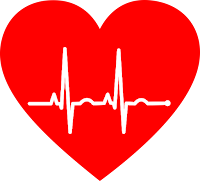We are all too familiar with cholesterol numbers and blood pressure causing heart disease. The total cholesterol number is not the most useful, knowing the breakdown and ratios in the components, triglycerides, LDL and HDL cholesterol is important.
What we have not heard a lot of is homocysteine. High homocysteine can lead to hardening of
the arteries, blood clots, stroke, heart attack and dementia. So, what is homocysteine?
Homocysteine is an amino acid. Homocysteine converts into methionine and cysteine, 2 amino acids that we need. However, in nutrient depleted individuals, the breaking down of this amino acid does not complete raising blood levels of homocysteine. High homocysteine can damage the lining of the arteries and create blood clots leading to heart attacks and strokes.
Smoking, regular alcohol consumption, increasing
age, kidney disease, autoimmunity are risk factors for high homocysteine. Not all patients with high homocysteine have
symptoms. This is the danger and can
make this a silent killer. So what symptoms
do you need to pay attention to?
- Tingling sensation in the hands, arms and feet
- Dizziness
- Fatigue
- Recurring mouth or tongue ulcers or sores
- A general sense of weakness or malaise
- Pale complexion
Genetic factors, MTHFR gene polymorphism can also be the
cause of high homocysteine. There are
many diet and lifestyle factors that influence homocysteine. Perhaps that is why there is not a ‘drug’ for
treating this marker! In conclusion,
homocysteine is an independent heart disease risk factor that is modifiable by
nutrition and exercise.
Discuss this with your health care professional and order a blood test to see what your homocysteine levels are if you are concerned.


No comments:
Post a Comment